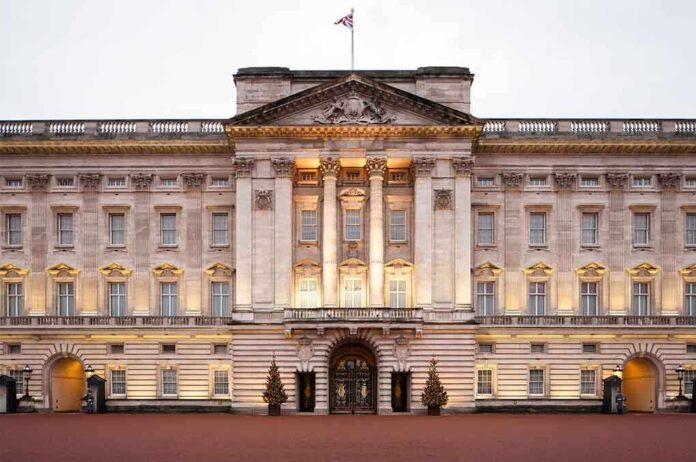Prince Andrew remains bitter about his exile from royal duties three years after his spectacular fall from grace, revealing the entitled mindset that led to his downfall over the Jeffrey Epstein scandal.
Story Overview
- Prince Andrew stripped of military titles and royal patronages in January 2022 following Epstein controversy
- Duke retains his title but cannot use “His Royal Highness” in public capacity
- Local communities continue pushing for complete removal of his subsidiary titles
- Constitutional experts note Parliament could strip his dukedom but would need Royal Assent
- Andrew’s case sets modern precedent for handling royal scandals without constitutional upheaval
Palace Delivers Swift Justice After Epstein Fallout
Buckingham Palace removed Prince Andrew’s honorary military affiliations and royal charitable patronages in January 2022, marking an unprecedented disciplinary action against a senior royal. The Duke of York’s association with convicted sex trafficker Jeffrey Epstein had become a liability the monarchy could no longer tolerate. Andrew ceased using his “His Royal Highness” style in any official capacity, though he retains the title privately. This calibrated response balanced public outrage with constitutional tradition, protecting the Crown’s reputation while preserving core monarchical structures.
Constitutional Mechanisms Available for Further Action
Parliament possesses the legislative authority to strip Andrew’s dukedom entirely, though such action would require Royal Assent from King Charles III. Constitutional experts emphasize this would be politically complex and unprecedented in modern times. Any legislative removal would need at least quiet palace backing due to constitutional sensitivities involved. The preference remains for non-statutory measures like role withdrawal rather than irreversible constitutional changes that could set unpredictable precedents for future royal crises.
Local Communities Demand Complete Disassociation
Citizens in localities tied to Andrew’s subsidiary titles—York, Inverness, and Killyleagh—continue advocating for complete title removal. Elected officials including York Central MP Rachael Maskell and local councillors have led petitions seeking disassociation from the disgraced duke. These communities recognize that symbolic geography shapes royal reputational politics, amplifying pressure beyond national headlines. Their persistent campaigns demonstrate how Andrew’s scandal extends far beyond palace walls, affecting the reputations of entire regions tied to his titles.
Monarchy Establishes Crisis Management Template
Andrew’s case established a modern template for handling royal reputational crises without constitutional upheaval. The monarchy prioritized institutional legitimacy through calibrated sanctions—removing public functions while preserving succession rights and core titles. This approach demonstrates the palace’s preference for proportional, reversible measures over permanent constitutional changes. The strategy successfully insulated the Crown from controversy while maintaining stability, though questions persist about whether further action might eventually become necessary to fully restore public trust in the institution.
Prince Andrew ‘annoyed’ by lack of royal status, has no future: author https://t.co/3OmmFDCB0t pic.twitter.com/Ahicda8NtB
— New York Post (@nypost) August 11, 2025
The Duke’s exclusion from royal duties remains indefinite, with no pathway back to public service. Charities and military regiments formerly under his patronage successfully reassigned to other royals, highlighting how the institution adapted to his absence. Andrew’s continued retention of his dukedom while facing ongoing scrutiny reflects the complex balance between accountability and constitutional continuity that defines modern monarchy crisis management.
Sources:
Prince Andrew, Duke of York – Wikipedia
Prince Andrew stripped of title – The Telegraph
Prince Andrew British Royal Line Succession – CBS News











